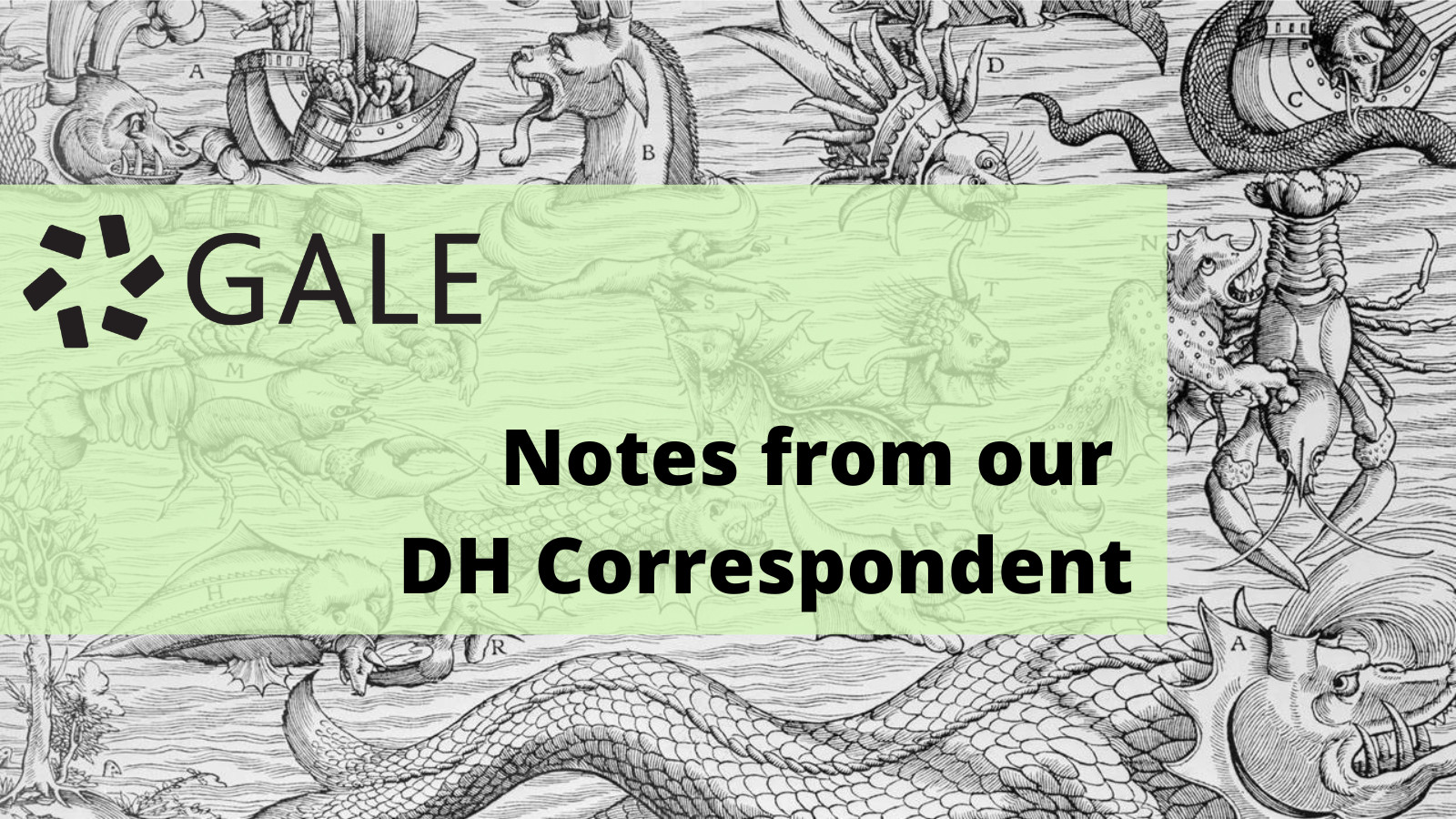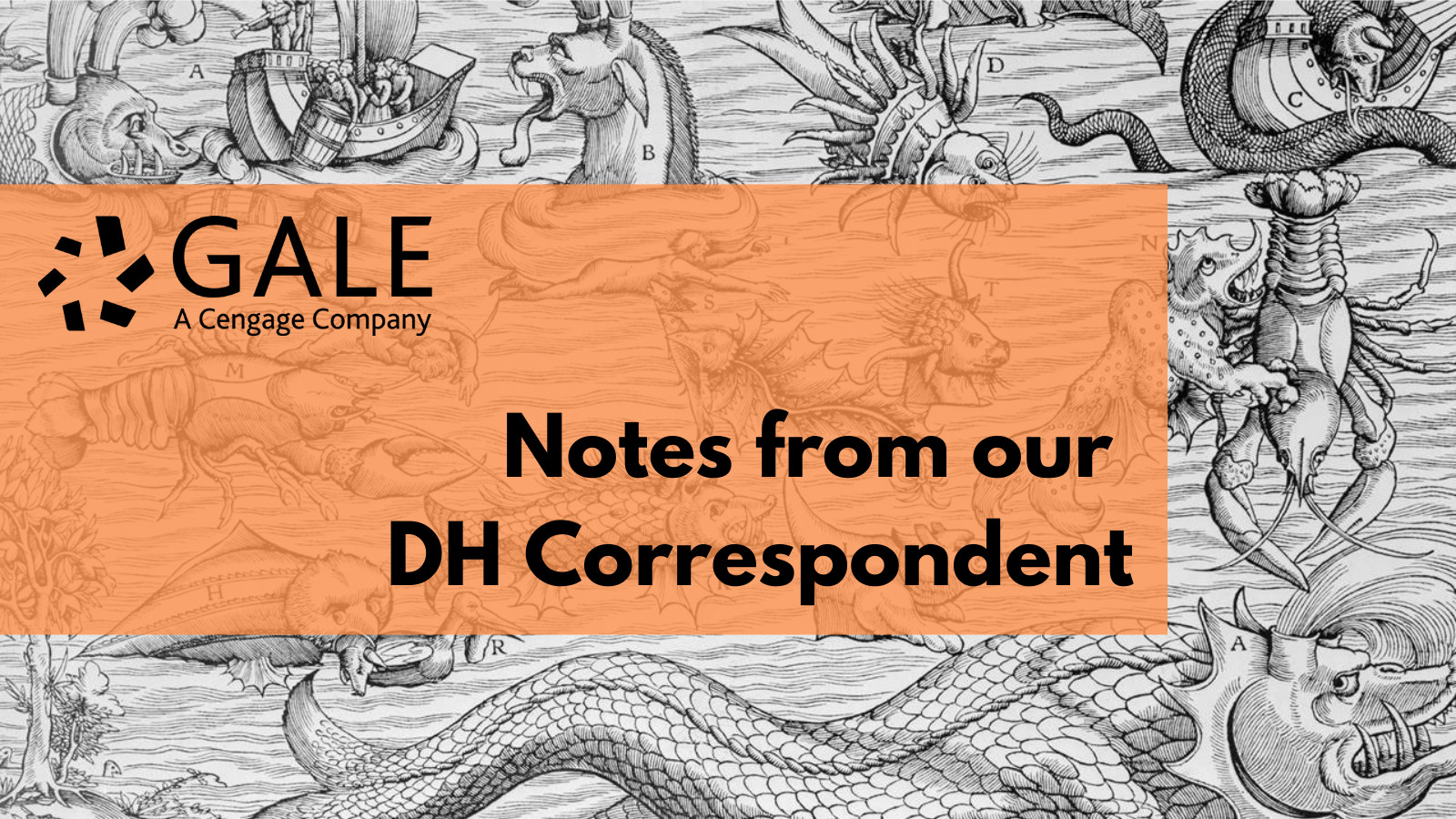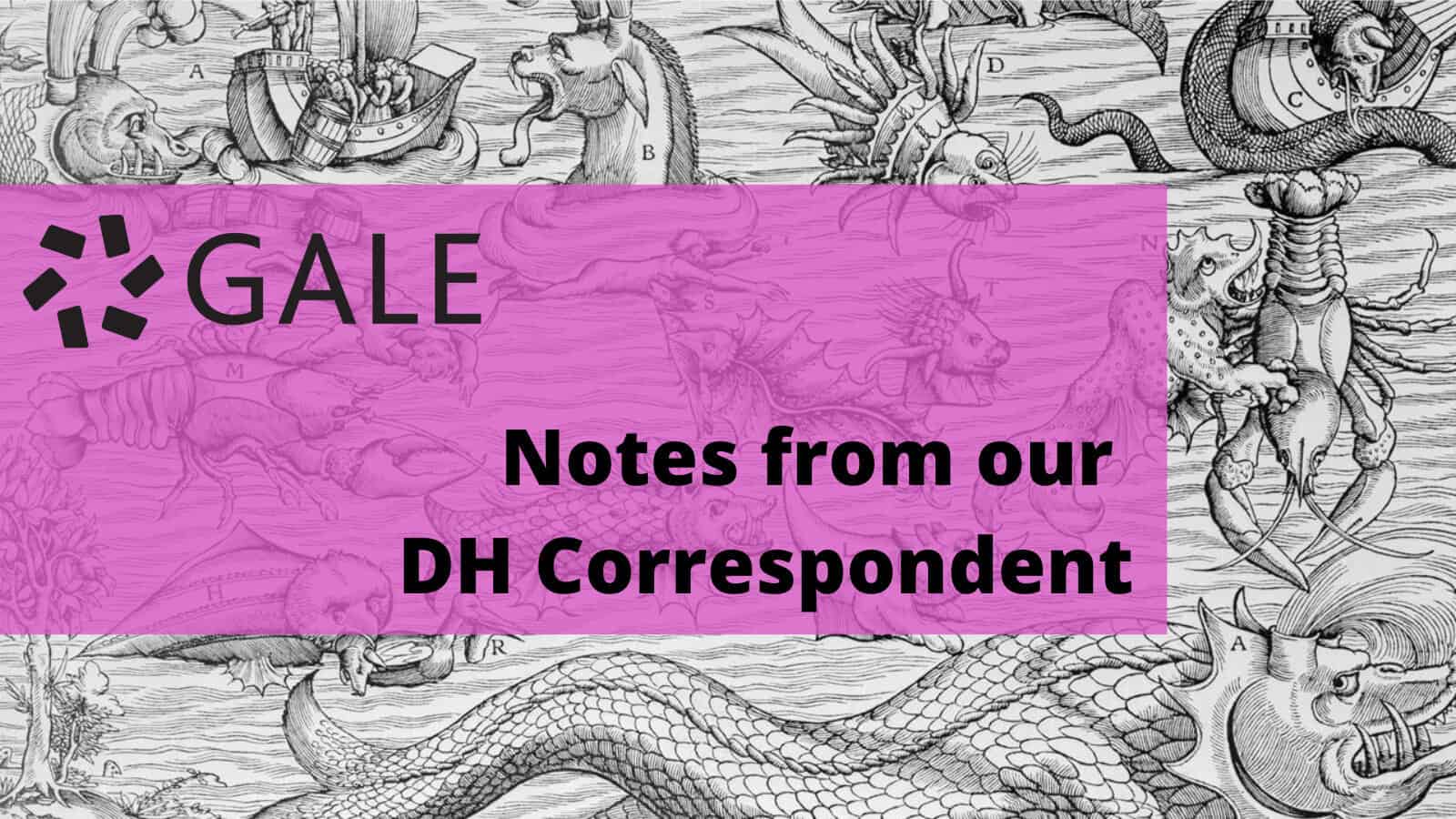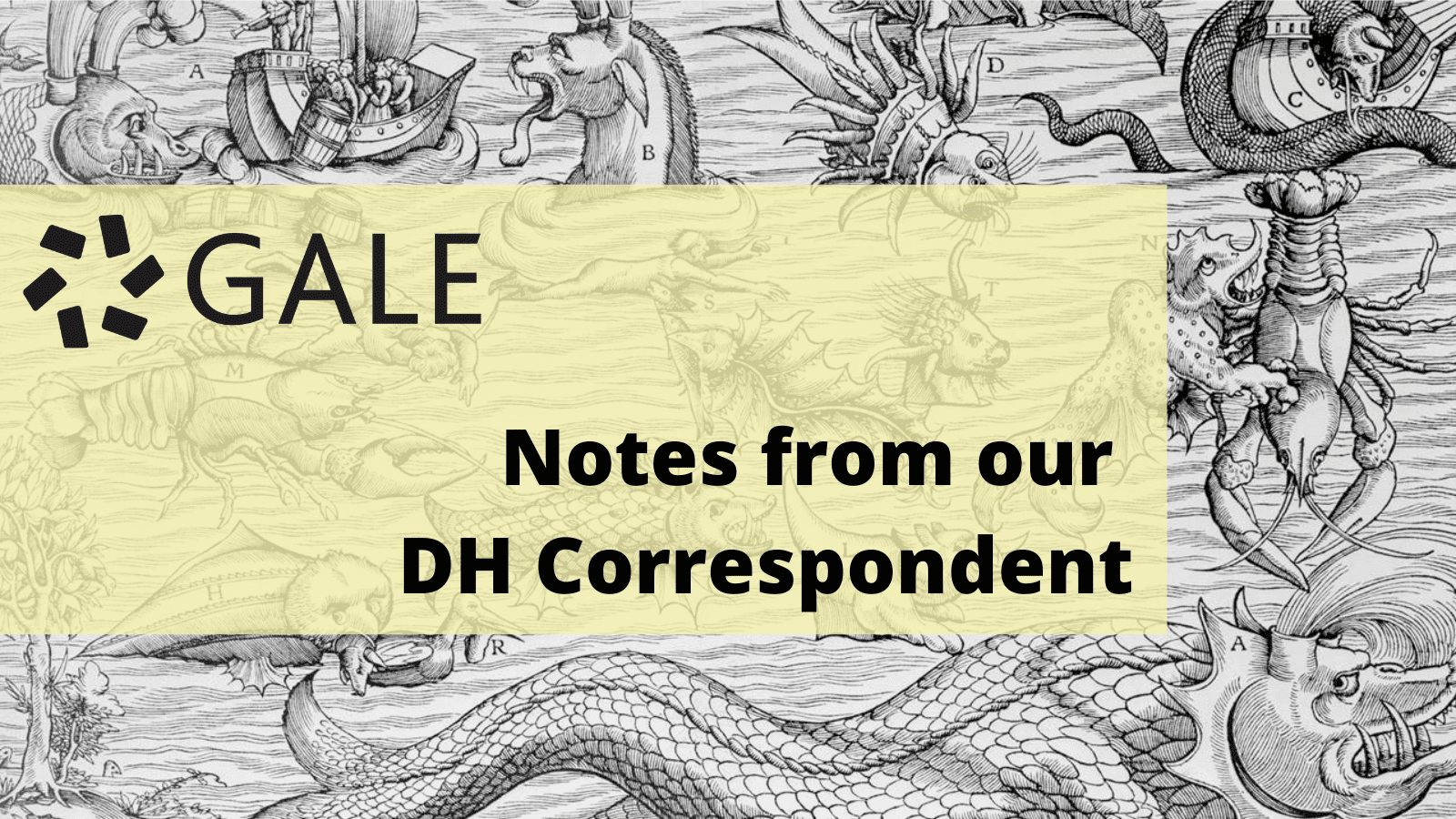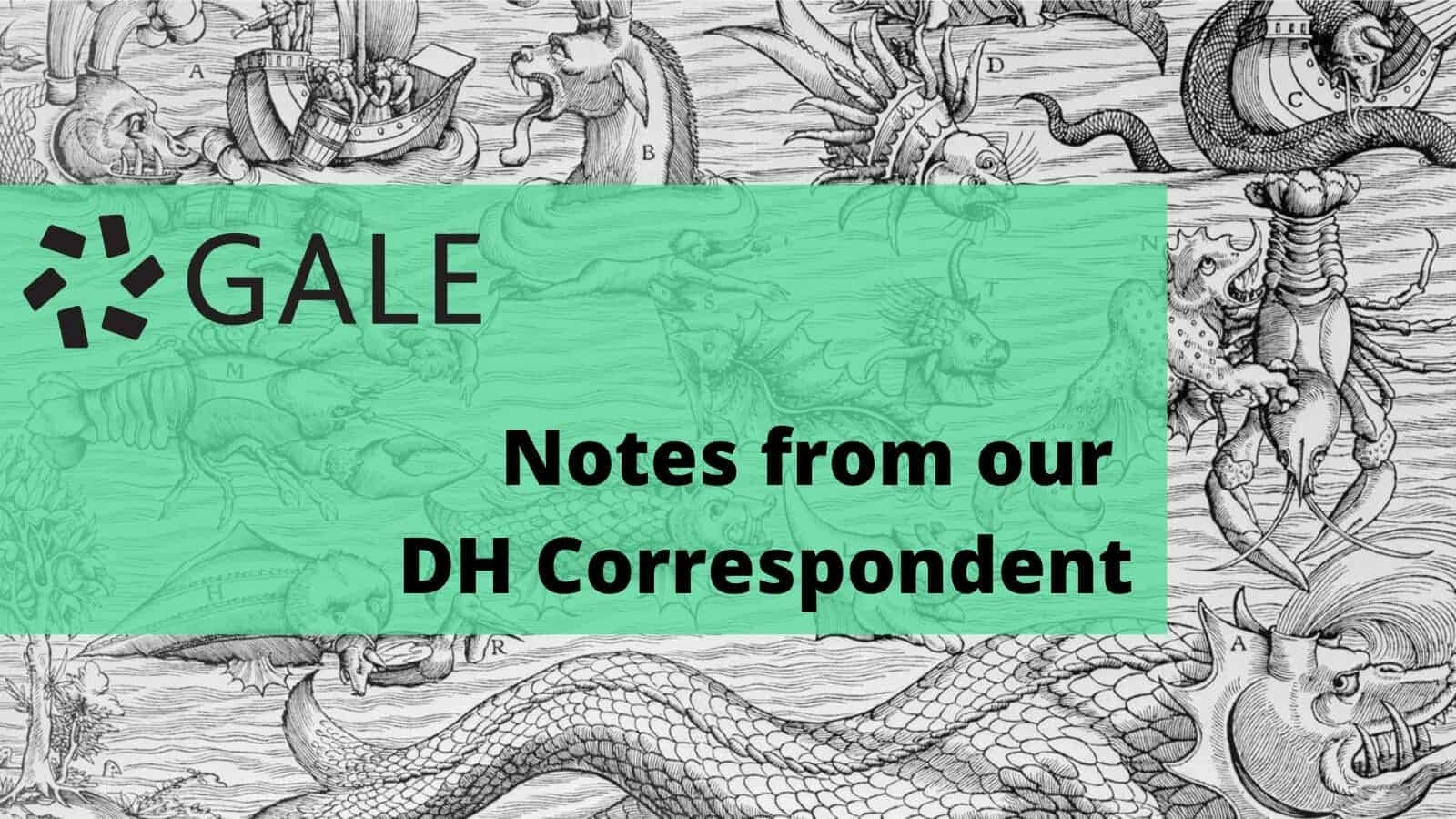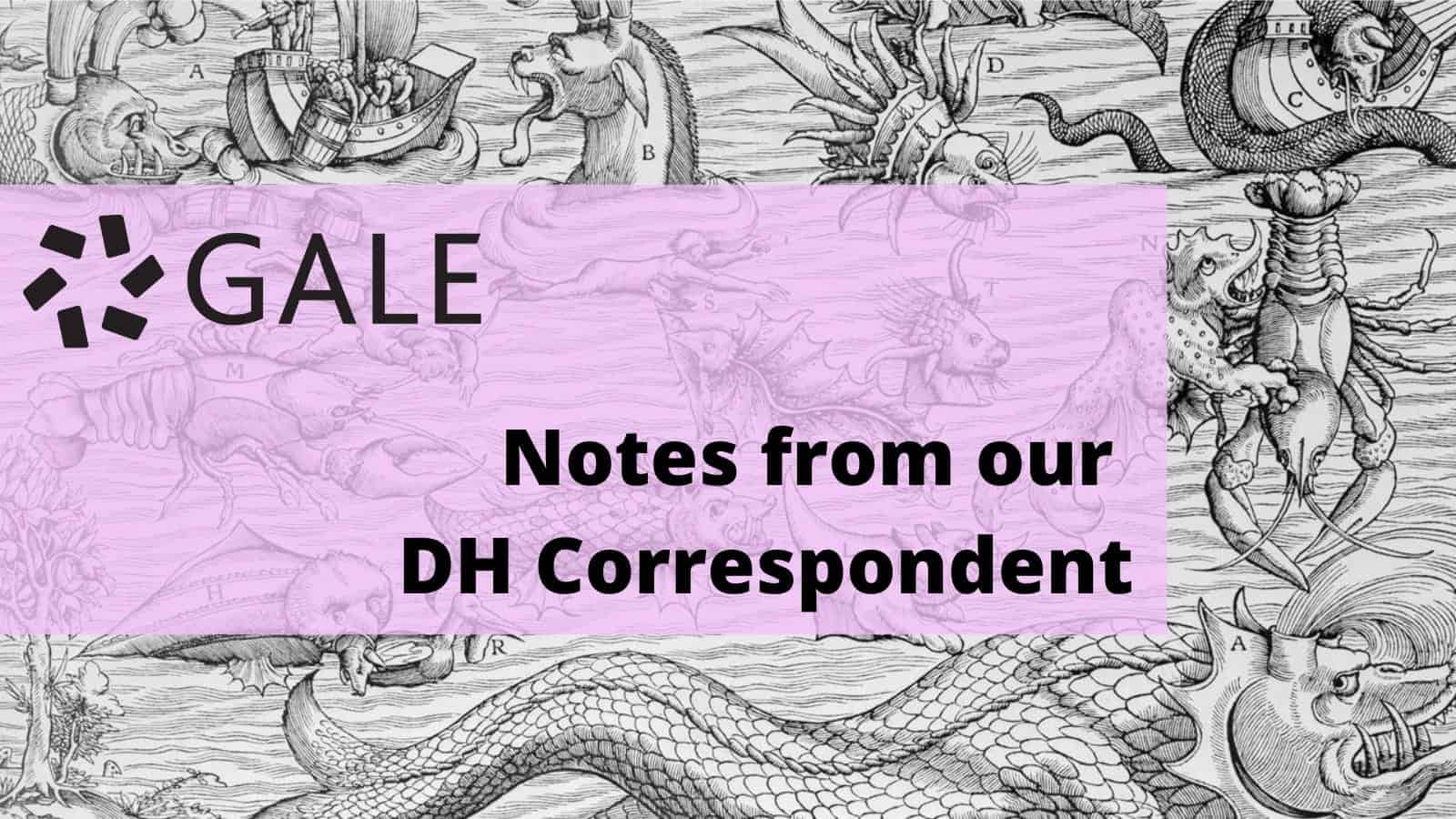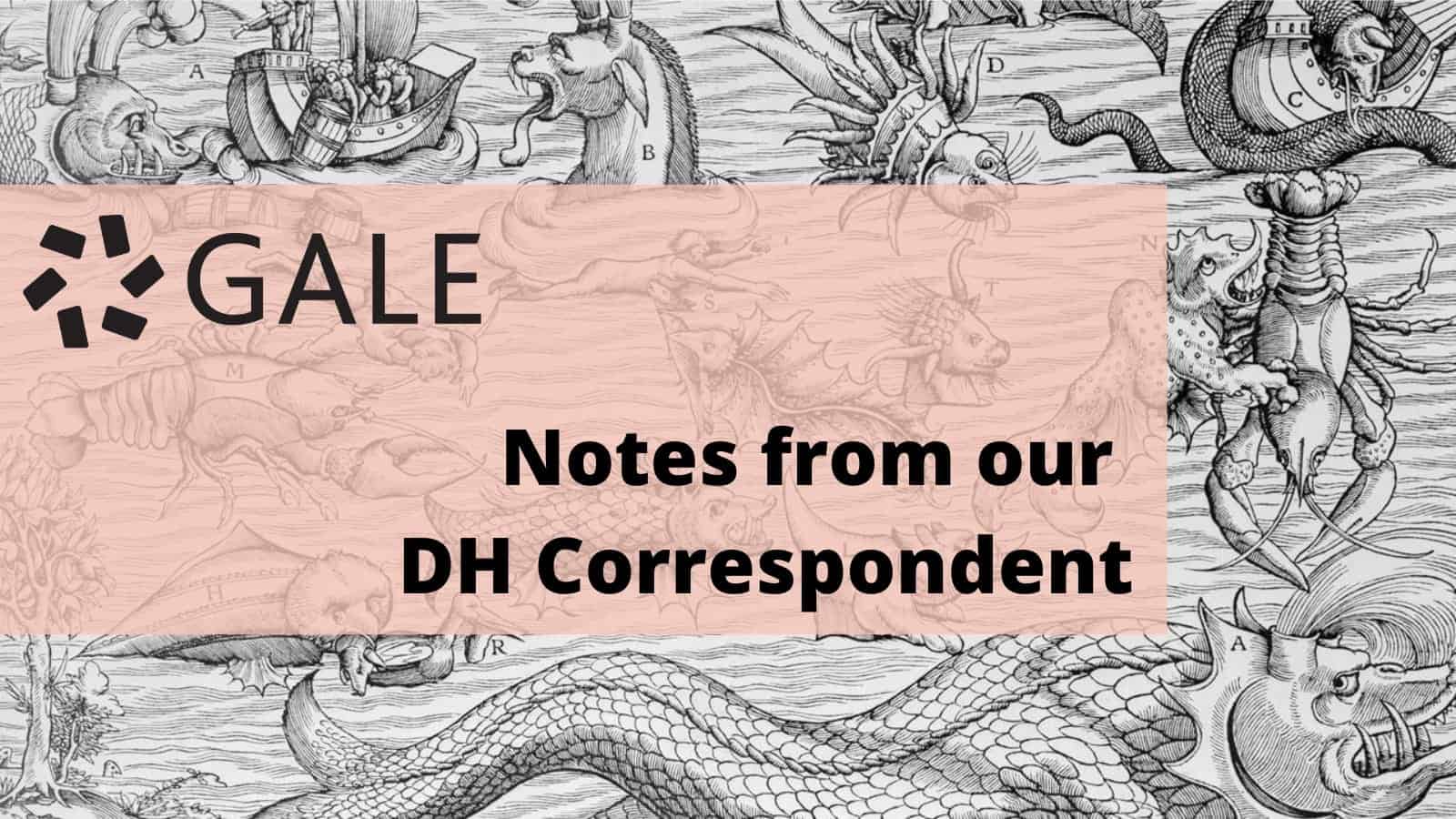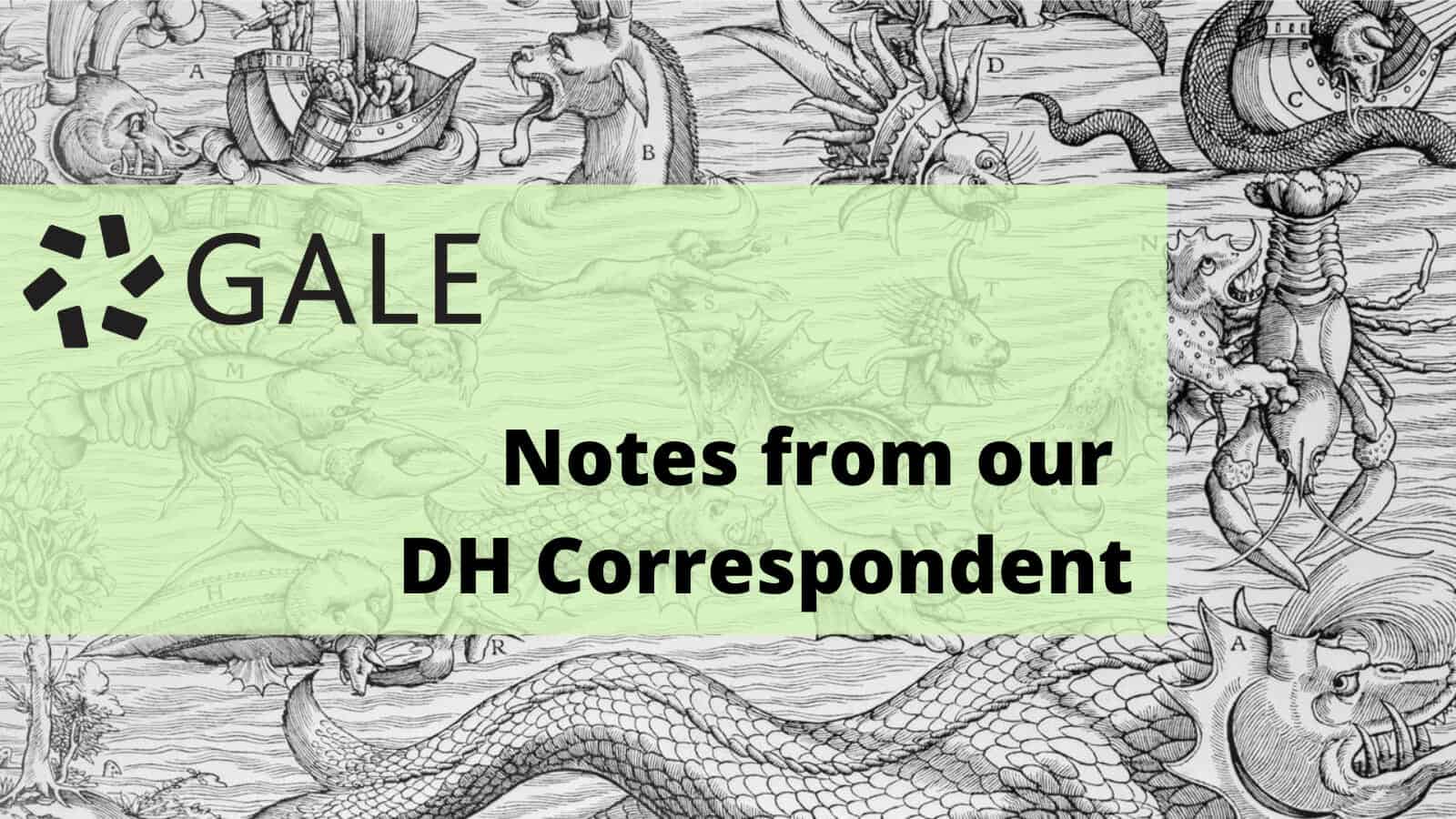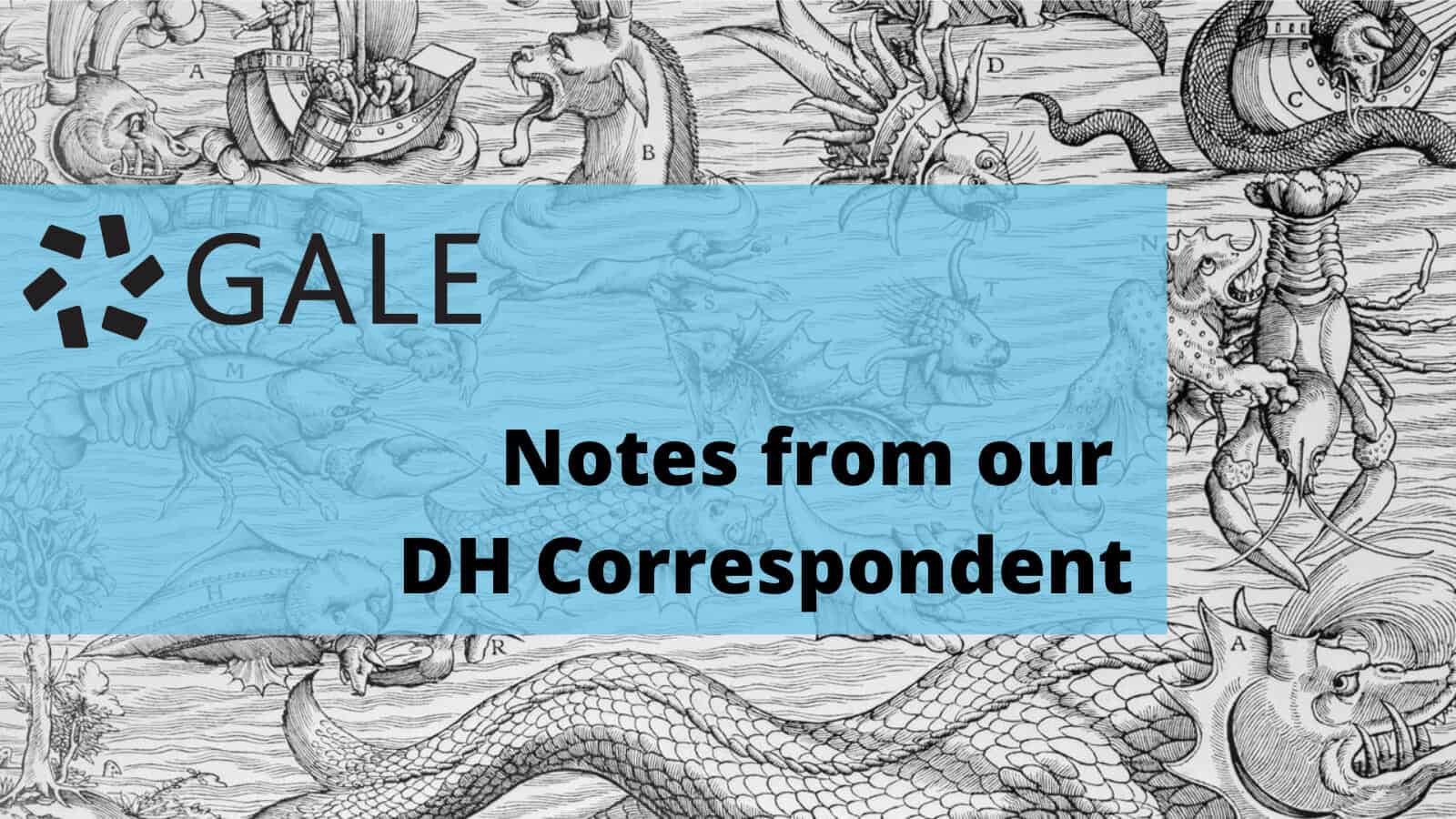│By Sarah L. Ketchley, Senior Digital Humanities Specialist│
Recently, three Python Notebooks were added to Gale Digital Scholar Lab to offer additional flexibility in processing and analysing text data. Each of the Notebooks can be downloaded by a researcher, then used or adapted to suit individual needs. This blog post offers some considerations for those interested in incorporating Python-based workflows into their text analysis pipeline but aren’t quite sure where to start.
This blog can also be read in conjunction with Women’s History Month in Gale Digital Scholar Lab: Named Entity Recognition, Python Notebooks, and an Intrepid Female Diarist which offers some practical programming insights into a project using Named Entity Recognition.

